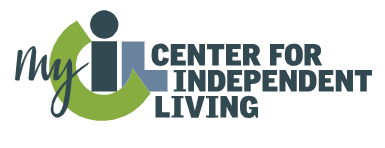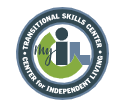In honor of October being National Disability Employment Month, we’re looking at why hiring people with disabilities isn’t just the right moral thing to do, but how it’s also the right thing to do for a business’s success.
Companies That Hire People With Disabilities Outperform Their Peers
A study by Accenture in partnership with the American Association of People with Disabilities and Disability:IN revealed that of the 140 companies studied, those with the most inclusive working environment for people with disabilities enjoyed 28% higher revenue and 30% greater economic profit margins. In fact, those companies considered “disability inclusion champions” were twice as likely than their peer group to have higher shareholder returns.
Companies That Hire People With Disabilities Offer a Better Working Environment for All Employees
While hiring people with disabilities helps position a company ahead in revenue, it also creates a better working environment for all employees. When a company engages in inclusive hiring practices, company morale and corporate culture improve.
Many people live with a hidden disability. And many of these people choose not to disclose to their employers their condition. When they see that their organization values inclusivity, they often feel comfortable disclosing their own disability. This disclosure paves the way for the company to provide accommodations that improve work life as well as productivity.
Companies That Hire People With Disabilities Tap Into Specialized Talents That Benefit the Bottomline
The companies that offer inclusive employment are bringing specialized talents into their organization. People with disabilities often possess distinctive, specialized skills.
For example, autism studies have shown a strong correlation between autism and attention to detail. Employees who are autistic can outperform their neurotypical co-workers in the roles of quality assurance, cybersecurity, code checking, and testing. Being adept at recognizing patterns can make neurodivergent employees better able to see correlations and interdependencies in large datasets.
In fact, the British Intelligence Service hires people with dyslexia in greater numbers as they are distinctively good at identifying abnormalities in surveillance data that their neurotypical counterparts will often miss. Other companies employ people with autism and Down Syndrome in creative roles because of their uniquely creative viewpoints.
And it’s not just employees with autism or other neurological diversity that can prove to be unique assets to companies. Other types of disabilities can prove to be advantages in the workplace.
For example, employers who need teams to work in noisy conditions, such as elevator shafts, benefit from hiring deaf people. Organizations have also found that people with physical disabilities are often better able to disuse strong emotions in the customer service sector.
And a security company based in Colombia called Seguridad Burns that monitors malls hires security workers who use wheelchairs. Their physical lower viewpoint is an advantage to spotting pickpocketers because they are positioned at pocket height. They can also rush to scenes quicker and many have superior upper body strength that proves helpful in restraining thieves.
Companies That Hire People With Disabilities Have a Competitive Advantage in the Value Provided to Customers
One of the easiest ways for the population to show support for people with disabilities is by supporting the companies that hire them. Research has shown that consumers value how a product is produced and who produces it.
By choosing to purchase from companies that have an inclusive team, customers have a stronger relationship with them. It’s called “communal relationship” in marketing terms. In layman’s terms, it means the customer wants the company to succeed, feels happy when it performs well, and is willing to support it actively.
Hiring people with disabilities makes good business sense. A variety of benefits comes from it, both tangible in terms of revenues, as well as intangible gains in respect to improved culture, a more highly specialized team, and a better position in the marketplace.





